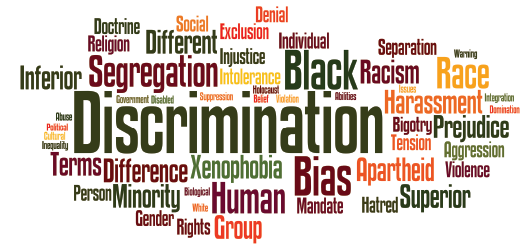
SurabhiArtss / shutterstock.com
Implicit bias negatively affects patients and clinicians alike in a variety of healthcare settings. Unconscious feelings and attitudes about others can damage professional and personal relationships.
Demystifying Bias
At the virtual ACR Division & Program Directors Conference in March, three physician leaders presented a panel called, Demystifying Bias: Empowering You to Have Courageous Conversations, and led small groups in troubleshooting exercises. They provided historical context and a multitude of ways to address implicit bias based on race as it arises in the workplace, whether you are the recipient of a microaggression, a bystander or the culprit.
“Unfortunately, biases are pervasive and infiltrate everything. That’s part of what we need to accept when we’re tackling them,” said Irene Blanco, MD, MS, director of the rheumatology training fellowship program at Albert Einstein College of Medicine, the Bronx, N.Y.
One of the workshop goals was to help participants learn how to increase their awareness of bias and preparedness to address and engage in conversations that can lead to impactful changes in work and learning environments. “Educators must be able to respond professionally to incidents of bias and/or discrimination in multiple settings,” said Dr. Blanco.
According to Dr. Blanco, courageous conversations involve four agreements: to stay engaged; to speak one’s truth; to experience discomfort; and to expect and accept that the conversation may not lead to closure.
Takeaways
Racism has been embedded in medical education. Racism in medical education reaches back—at minimum—to Reconstruction in the 1860s, when the American Medical Association refused to accept membership of Black and indigenous physicians, said Shani Scott, MD, a clinical educator and Firm 1 assistant program director in the Internal Medicine Residency Program at Albert Einstein College of Medicine.
The Flexner Report of 1910 molded many aspects of today’s medical profession with its high admissions and graduation standards. The report was also responsible for introducing racist stereotypes of Black medical students and faculty, suggesting Black physicians should only treat Black patients and be subservient to white physicians. And the report was the catalyst for all but two Black medical schools (Howard and Meharry) closing in the U.S.
The Flexner report remains “embedded in the norms of how we practice medicine,” said Dr. Scott, adding that its author, Abraham Flexner, directly recommended standardized testing in an environment in which it was illegal and deadly for Black citizens to read. She said standardized tests remain biased today, with numerous studies indicating they lead to fewer minorities in medicine and bear no direct relationship to how one will practice once they complete training.



